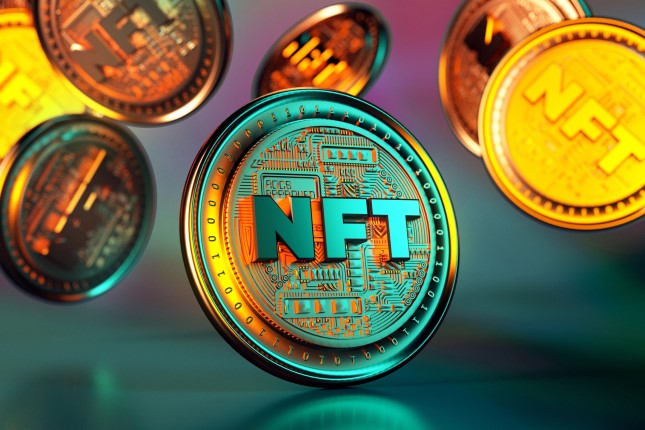A moustachioed Indian policeman stands threateningly on the road. An SUV with heavily armed gangsters is heading right at him with great speed. Thugs are determined, and the guard is unwavering. Right before the collision, he pushed his fist. The SUV crashes into it, takes to the air and explodes. This scene from an Indian crime thriller has become a viral meme on the Internet.
For a western viewer, it looks unbelievably grotesque. While even American second-class action movies do not direct battle scenes so freely, for the Indian audience, such a movie is not phenomenal, as well as the fact that the actors cannot spend a few minutes without singing and dancing.
The popularity of this peculiar spectacle continues to grow worldwide. Over the past decades, Indian cinema has firmly established itself in the country, and lately, it has begun to expand beyond its borders.
Globally it is associated with Bollywood, the "star factory" of Mumbai, formerly Bombay. Film studios in other states of the country produce movies in different languages. However, it is not a coincidence that only Hindi-speaking Mumbai studios are compared with the American film industry.

India produces about 2,000 movies a year. One-fifth of them are made by Mumbai – around 400 films annually, approximately equal to the total output of American studios. In addition, Bollywood accumulates almost half of the entire box office of the Indian market, and the sum is approximately USD 1 billion.
Huge revenues help producers attract foreign technical specialists and create bolder projects. It starkly contrasts the industry's early days when funding for filming had to be drawn from businesspeople with dubious reputations. Things went uphill in the early 2000s when the government gave the film industry an official status, which allowed it to receive bank loans.
In India, the love of Bollywood is compared to religious worship. And not only because in cinemas, the audience behaves extremely emotionally – they shout out advice to the heroes, cheer up the heroines of movies, sing along and dance along, and loudly condemn villains, throwing snacks at them sometimes.
Worship goes far beyond the cinema halls. Indian superstars have temples and pilgrimage sites dedicated to them. Thanks to Indian cinema, there has been a boom in domestic tourism in the country for many years. Millions of devoted fans now visit previously abandoned places that were lucky enough to become filming locations. Realising the advantages of cooperation with studios, state governors provide them with numerous benefits.
Having gained such support within the country, Bollywood actively enters international markets. As a result, on the one hand, Mumbai producers' eccentric films are becoming more and more familiar to a global audience. On the other hand, the producers start to consider not only the needs of local viewers but also the interests of foreign audiences. Streaming platforms that make Indian films available to billions of people worldwide also contribute to it. The dynamics make the Indian film industry westernised, but it still preserves its national character. To avoid losing to Hollywood, it is essential not to lose yourself.
The rise of modern Chinese cinema took place in the early 2010s when for the first time in the history of China's film industry, the comedy "Lost in Thailand", filmed in Beijing, earned a billion yuan – more than USD 150 million. The resounding success coincided with the intensive development of the economy and attracted investors from the booming construction and foreign trade sectors to the industry. If earlier Hollywood films had taken precedence on Chinese screens, by 2020, the situation radically changed. In China's top 20 popular movies, American films occupy only a few lines.
The tendency was reinforced by the decisions of the Chinese government, which introduced a quota for foreign films – no more than 20 per cent. In addition, the Chinese authorities have, at some point, become more strict about the content of Hollywood movies that are allowed on the widescreen. In particular, the country does not give distribution certificates to films that show time travel and the ability to influence the development of historical processes. Films in which Chinese characters play villains or talk about China's policy in Tibet, Taiwan or Xinjiang are also not welcome. Chinese audience does not like movies in which local actors have minor roles.
Hollywood studios willingly accept the game's rules, although they are criticised at home. The huge Chinese box office in 2020 surpassed the American one contributing to their compliance. Practically it means that if a film fails at the box office in the United States, it can win back losses in China and even get a plus. American producers lobby for their movies to receive distribution certificates and more often agree to co-produce films, which makes it possible to bypass quotas for foreign films.
Chinese studios are actively investing in Hollywood. For example, Dalian Wanda Group acquired AMC Entertainment for USD 2 billion. China's Perfect World Pictures invested about USD 500 million in making films at Universal Studios, and TIK Films invested USD 300 million in joint projects with Lionsgate.
Chinese movies become available for the world audience not because of their uniqueness but because they imitate global standards. Sometimes they fail, as in the blockbuster "Great Wall" starring Matt Damon, William Defoe and Pedro Pascal. But sometimes they are pretty successful, as in "Mega", a film about a giant shark that was liquidated with the active participation of Chinese scientists and submariners.

Bollywood is betting on its authenticity, and Chinese studios copy the familiar for a broad audience American style, adjusting only the content for itself. Meanwhile, the trend is becoming clearer: Chinese and Indian films, in which Hollywood stereotypes are used too directly, are not liked by the world public. The same is true for movies with a strong national flavour.
Thus, universality is the only way for a local cinema industry to reach the global market. A movie can't be successful if it is not understood.

































